Fleeting thoughts

THOUGHT is the only power which can produce tangible riches from the Formless Substance. The stuff from which all things are made is a substance which thinks, and a thought of form in this substance produces the form.

I am reading Science of Wellness by Wallace D. Wattles. He teaches about Intelligent Substance from which all things are made. It sounds to me like he is describing the ether, and his descriptions sound like zero point. It is his description of God, the source of all.
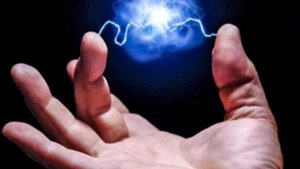
His teachings are the foundation of Think and Grow Rich, The Secret, and other self-help books along this line.
Here is the gist of it: Don’t harbor any thoughts of illness, disease, or sickness. Instead, focus on your body as completely well.
I think, therefore…
Our current state of understanding is incomplete. If we learn physiology we will start to focus on all the parts of life which can go wrong. It is this imperfect understanding which causes the dis-harmony of the physical body and the mental body.
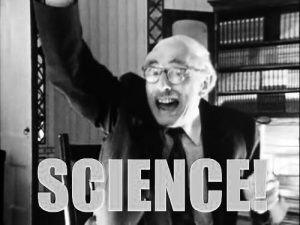
It seems the turn of the 20th century gave the word “Science” a buzz-word quality. Wallace’s use of the word seems disassociated from science in that empirical data is not collected or studied (well, not cited).
Visualizing the perfect state of being is hampered by things like facts. To be fair, Wallace does give two examples of when “Facts” were wrong. He points out that a person’s acceptance of facts controls his/her mental picture.
Example one: A story of a Saint’s bones kept in a monastery had miraculous healing abilities. People traveled from afar to touch and be healed by the bones. A line formed daily, and anyone who touched the bones was healed. One night, a vandal broke in and stole the bones. The monks, not wanting to deal with making the fact the bones were gone public, replaced the bones with those of a long dead murderer. The figured they would be able to come up with a reason the healings stopped. But, much to their surprise, the healings continued unabated. The reason? The public still believed the bones were the Saint’s. Their faith had healed them, not the bones.
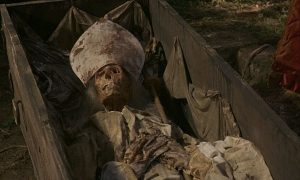
Example two: It was generally accepted belief that a person could not exist longer than 10 days without food. At the time, if a person went without food for 10 days, they died. Empirical evidence would prove the fact. Then a doctor started writing about his own 30-40 day fasts. As more people learned of this, the length of which a person could survive without food lengthened. Soon it was believed a person would live 10-50 days without food. And, people began living longer when shipwrecked or otherwise were forced to live without food.
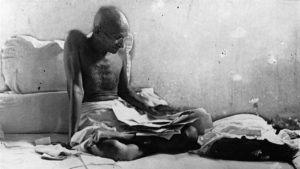
It is curious how powerful belief is. If a person gives up the will to live, they soon perish. Wallace teaches that it is better not learning the facts because the facts are incomplete, imperfect. They will skew your belief. It is better to visualize perfection and accept that as fact.
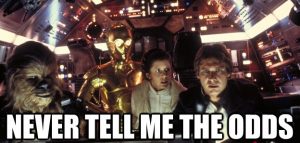
It reminds me of Han Solo telling C3PO to “Never tell me the odds!”
If you know the odds, it is less likely you will beat them.
If you truly believe… you will receive! If you don’t receive, you didn’t believe.
Choose wisely!

Leave a Reply
You must be logged in to post a comment.